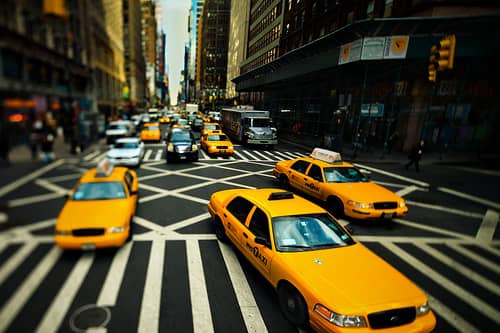Google could put taxi drivers out of business in NYC
As soon as next year, residents of New York City might start seeing driverless taxis on the city’s streets.

The eventual aim is to have 9,000 of these vehicles on the street, currently there are around 13,000 yellow cab drivers but Google states that the driverless vehicles are more efficient than yellow cabs, and could cut service time by up to 50%. Dubbed the “Zipper” and individual vehicles dubbed a “Zippie”, the cars will come kitted out with card and vending machines, better entertainment systems and they’re even self-cleaning. The vending machines will even change what they offer depending on the time of day or even the season.
Will It Impact NYC Taxis?
A Zippie can be hailed by either using an app on a smartphone, or by pressing one of over 50,000 giant red “+1” buttons spread across the city. To begin with, a limited number of Zippies will be available in Queens and Brooklyn only. Once in the taxi you can instruct the vehicle on where you want to go by either speaking into the in-built “G-phone” or via your smart phone. Tourists who may not be particularly strong in spoken English need not worry, as the Zippie can understand around 80 different languages. They will also be electric bio-fuel hybrids and the system is expected to save New York City money in the long term.
Google also got the green light to test their robot cars on public roads, although safety drivers will be present in the vehicle to take over should a problem arise. Previously, Google’s robot cars were only allowed to operate on test tracks, and this will be the first time that they have mixed with regular traffic. The aim is for them to eventually operate without a steering wheel or any other controls. The only car that has been tested on public roads has been Lexus SUVs which were heavily modified before use.
We’ll be following how successful the implementation of the Zipper will be in New York City, and as a major provider of taxi insurance, we’ll be interested in finding out how this will affect the industry.
Image c/o Aftab Uzzaman